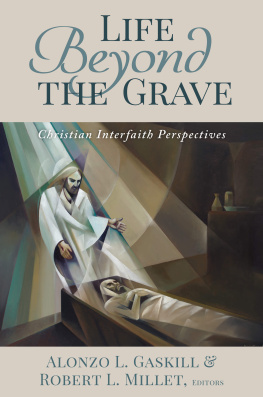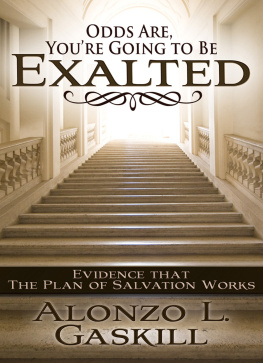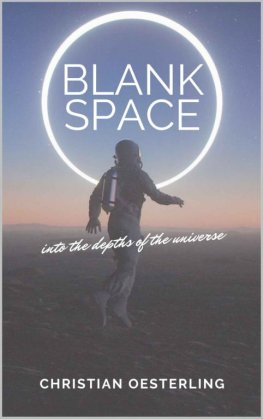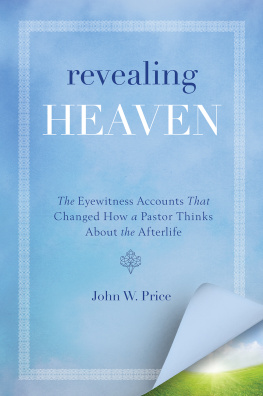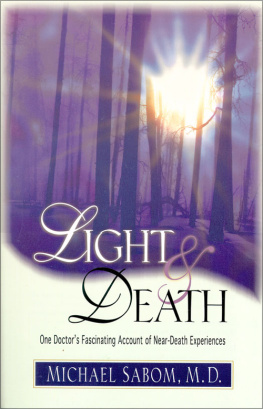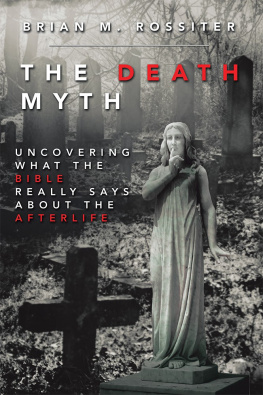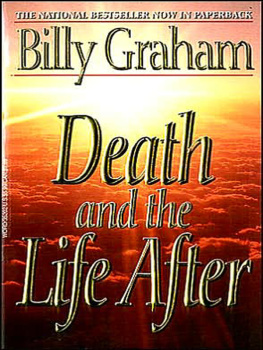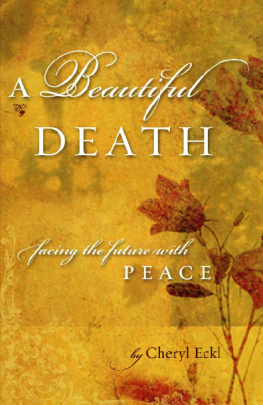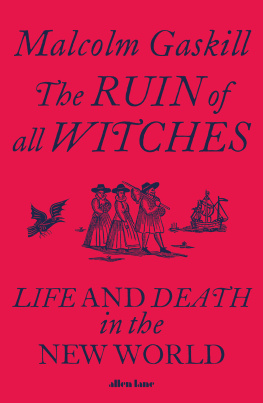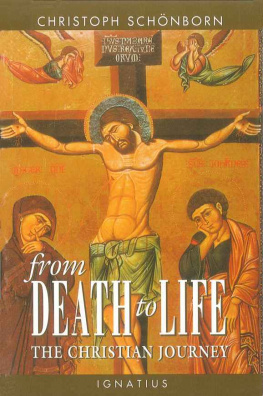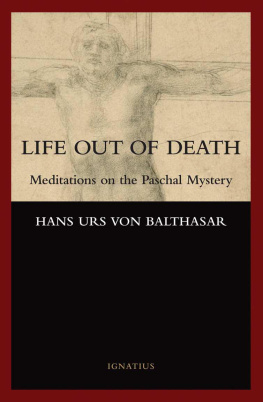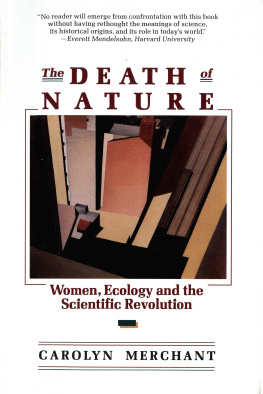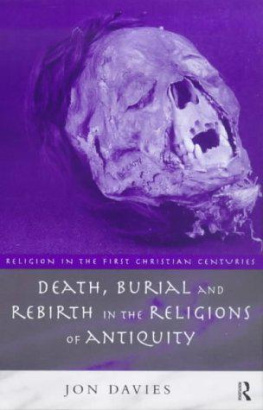Acknowledgments
We gratefully acknowledge BYU Religious Education for sponsoring the Beyond the Grave conference and for each of the presenters for their remarkable contributions. We express appreciation to the Religious Studies Center team for their assistance: publications directors Thomas A. Wayment and Scott C. Esplin; publications coordinator Joany O. Pinegar; editors R. Devan Jensen, Emily Cook, Sharai McGill, and Petra Javadi-Evans; production supervisor Brent R. Nordgren; and designer Emily V. Strong.
Introduction
Robert L. Millet
Robert L. Millet is a professor emeritus of ancient scripture, Brigham Young University.
Surely no subject has captured the attention of men and women like that of death and the life beyond. Millions have sought with Job to know, If a man die, shall he live again? (Job 14:14). And if there is a future state, what is its nature? How best may mortal men and women prepare for it? Indeed, death has ever remained lifes most awesome mystery. In the absence of revelation or divine guidance, humankinds would-be gaze into future worlds is unable to penetrate the darkness of the grave.
There is nothing more universal in this life than death; it is the common lot of all who come into this life to leave it. Every man or woman is born, and every man or woman must die. All are born as helpless infants, and all depart this sphere equally helpless in the face of death. Even among those who read by the lamp of religious understanding, death is frequently viewed with fear and trembling. And why do we fear death? For some of us, it is because of our ignorance of the unknown, the anxiety associated with going to a place we do not understand. Others fear because they do know enough about what lies ahead and fret over a profligate lifestyle and the divine justice that awaits them. Others stew over unfinished earthly business. Even those who have lived lives that could be described as decent and upright are hesitant to let go, to surrender themselves to the powers of eternity and release their grip on time. Surely a God who has power over all things, even death, would be merciful enough to his children to reveal sufficient truth to prepare and comfort us concerning what lies ahead.
This book contains perspectives on life after death, primarily from selected proceedings of an academic conference held on the campus of Brigham Young University in March 2016. The title of the conference was Beyond the Grave: Christian Interfaith Perspectives. Representatives of several professing Christian groups were asked to address the topics of death and what lies beyond death from the vantage point of their particular religious tradition. There has been no effort whatsoever to ignore theological differences between the various traditions, nor was it ever expected that a presenter compromise in the slightest what he or she holds to be true. This conference has been an ecumenical endeavor only in the sense that we came together to listen, to learn, to ask questions and inquire, in short, to better understand one another. In a world that is overrun with misunderstanding, misrepresentation, name-calling, and pigeonholing, nothing should be more welcome than understanding. At a time in our worlds history when incivility and disrespect are the order of the day, a small group of religious-minded individuals met to have their perspectives expanded, their erroneous notions corrected and set aside, and their empathy and appreciation for those who are different from themselves enhanced.
Throughout the conference, we sought to embody what Professor Richard J. Mouw of Fuller Theological Seminary has described as convicted civility. It is a marvelous thing to discover a person who is deeply convicted about the tenets and practices of his or her faith. It is also an exciting occasion when differing parties treat one another in a civil manner. And it is a sheer delight to witness a person who is both convicted and civil.
It is our hope that readers will find the contents of this work to be both intellectually challenging and spiritually uplifting.
Note
.Richard J. Mouw, Uncommon Decency: Christian Civility in an Uncivil World , rev. ed. (Downers Grove, IL: InterVarsity Press, 2010).
Chapter 1
Dogma and Hypothesis
Purgatory, Limbo, and Catholic Views of the Afterlife
Mathew N. Schmalz
Mathew N. Schmalz, a Roman Catholic scholar, is a professor of religion at the College of Holy Cross in Worcester, Massachusetts.
I. Father/Son Discussions
I grew up in a Roman Catholic family, and we fancied ourselves to be Catholics of an intellectual sort. The exception to this was my grandmother who was a Catholic of a more traditional kind and would often say the rosary by my bedside as I went to sleep. Our family never fully integrated itself into the devotional rhythms that, in the 1960s and 1970s, still characterized what might be described as ethnic Catholic life. My father was a college art professor and a Catholic convert, and I never saw him reciting a rosary, though tears would often fill his eyes when he discussed the mosaics of the Church of San Vitale in Ravenna or baroque church altars of Bernini. Given our intellectual propensitiesor pretensionsit was a fairly regular practice for my father and me to have after-dinner discussions about theological questions such as the existence of God, the authenticity of papal authority, and the efficacy of Catholic sacraments.
During these father-and-son religious conversations, which, more often than not, would culminate in thinking through Catholic understandings of the afterlife, my father would often say to me, in a way both professorial and paternal, You know, Mathew, your mother is a saintshes going straight to heaven. But me, my dad would say, Im probably going to have to spend some time in purgatoryreferring to that intermediate place of purgation between earthly life and heavenly glory. The prospect of going there after death was a real possibility that evoked feelings of both fear and hope for life beyond the grave.
Our discussion of purgatory often would lead to considering another more theologically challenging aspect of the afterlife that had to do with the circumstances of my birth. I was an adopted child, so I spent the first four months of my life in an orphanage. I knew very little about my birth parents, but one thing I did know is that my birth mother had me baptized. My father, commenting again in a way both professorial and paternal, said, Wasnt it thoughtful that your birth mother had you baptized? What if you had died before we had adopted you? You might have gone to limbo. Limbo was that place for infants who had never sinned but also never received the sacrament of baptism. I often imagined limbo as a warm, temperate place where it was always twilight: its inhabitants floated, surrounded by otherworldly ether.
Orthodox Christians do not accept the existence of purgatory, and limbo has also remained an exclusively Catholic concept. Taken together, however, purgatory and limbo often serve as evidence of the distinctiveness of Catholic doctrines concerning the afterlife: rigorously reasoned within a sophisticated and substantive tradition of theological inquiry in the view of some; idiosyncratic and unscriptural in the opinion of others. Dante positioned limbo at the uppermost level of hell; it is where virtuous pagans and unbaptized infants go. Dante likened purgatory to a mountain that is climbed in the process of human spiritual growth: at its summit, the gates of paradise open.

